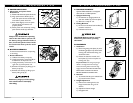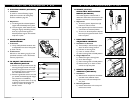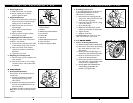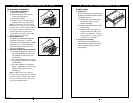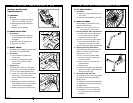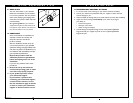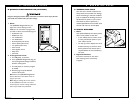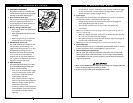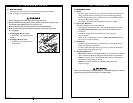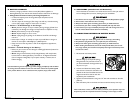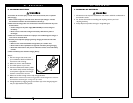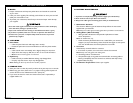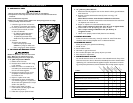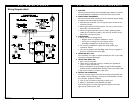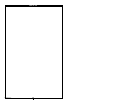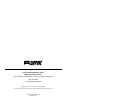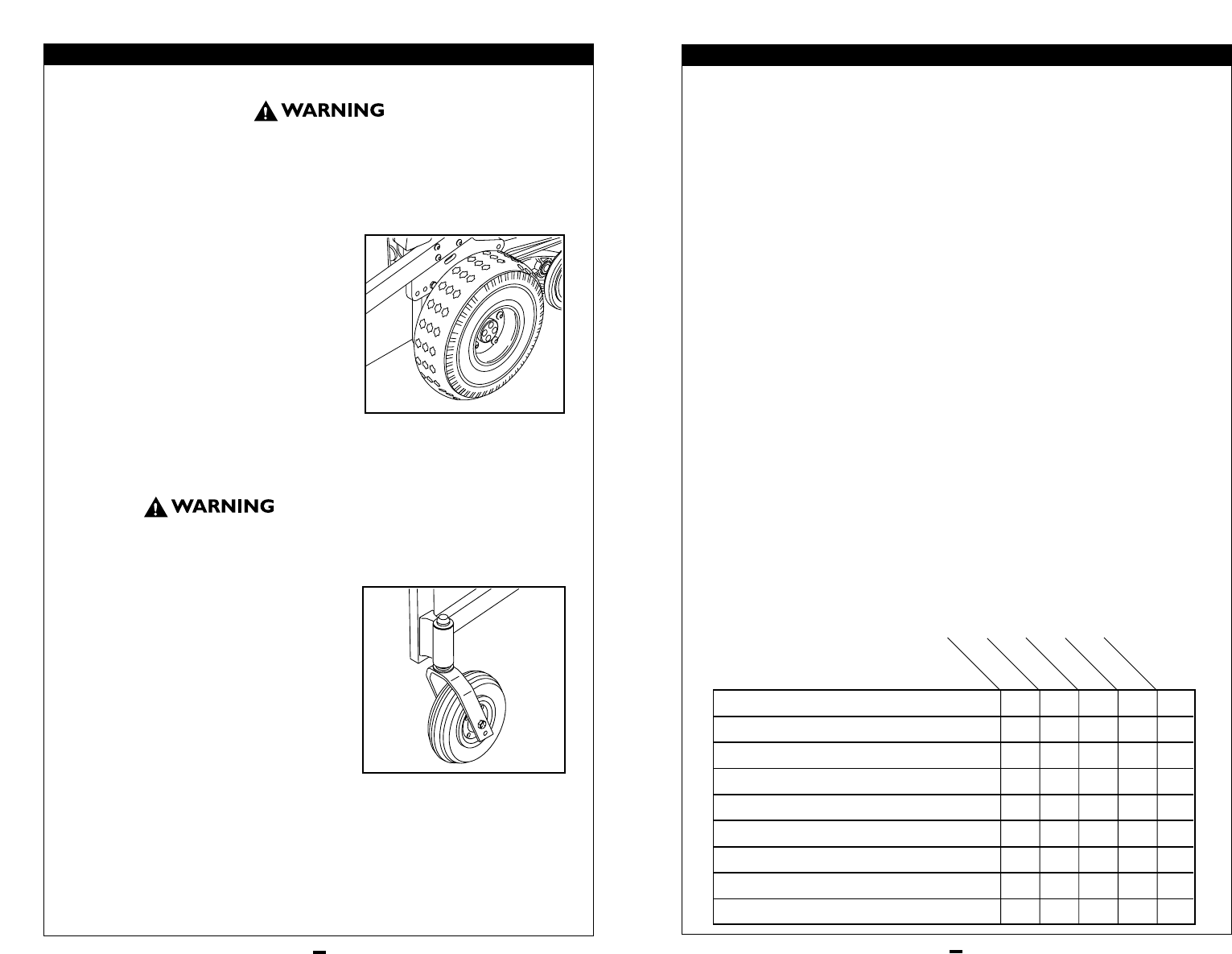
55
930336 Rev. E
XII. MAINTENANCE
2. 10" (260 mm) Drive Wheels:
a. Elevate and securely support chair so that wheel is off the ground. Release
all air from tire.
b. Remove 4 center socket head screws (A) from rim using a 1/4"
allen wrench.
Note: Do not remove outer button head bolts at this time.
c. Make sure all air has been removed from tire. Remove the four bolts from
rim. Separate two halves of rim.
d. Repair or replace inner tube. Reassemble the wheel.
Use a torque setting of 120 in.-lbs. (13.5
N
.
m) to re-tighten bolts.
e. Install wheel on chair by replacing four center screws.
Use a torque setting of 300-350 in.-lbs. (34-40
N
.
m) to
re-tighten screws.
f. Inflate tire to proper pressure level (listed on tire sidewall).
G. MOTOR BRUSHES
Check the motor brushes every three (3) months for wear.The brushes
should be clean and shiny.Replace worn or blackened brushes.
H. ORDERING PARTS
When you order parts, provide the following:
1. Model of chair
2. Serial number of chair
3. Left hand or right hand control
4. Part number, description and quantity of parts you need.
5. State reason for replacement.
I. MAINTENANCE CHART
You should check the items on this chart at the indicated intervals. If any of the
items are loose, worn, bent or distorted, immediately have them checked and/or
repaired by your authorized Sunrise supplier. Frequent maintenance and servic-
ing will improve performance, extend wheelchair life, and help prevent injuries.
Charge Batteries
Check tires for proper inflation level
Check batteries for proper electrolyte level (wet only)
Check plugs and connectors for proper connections
Check all moving parts for wear
Inspect all nuts, bolts and fasteners for looseness or wear
Inspect upholstery for wear
Remove and inspect motor brushes
Servicing by authorized Supplier
CHECK...
✓
✓
✓
✓
✓
✓
✓
✓
✓
Quarterly
Annually
Monthly
Weekly
Daily
54
930336 Rev. E
1. Check for signs of wear and correct
air pressure in pneumatic tires weekly.
2. For best performance, inflate tires to
the same pressure level, as shown
on the tire sidewall:
• 8" (200 mm) pneumatic casters -
30 to 40 psi (207 to 275 kpa)
• 10" (260 mm) pneumatic drive
wheels-35 to 45 psi (240 to 310 kpa)
3. Caution:
To prevent tire damage:
• Use a hand pump (or a low
volume air pump) to inflate tires.
• Use a tire gauge to check pressure.
F. TO REPAIR OR REPLACE A TIRE
Residual air pressure in tires can cause severe
injury. Make sure you release all air in tire
before attempting to service or repair tires.
1. 8" (200 mm) Caster Wheels:
a. Release all air from tire.
b. Remove caster wheel from fork using
a 1/2" wrench.
c. Make sure there is no residual air in
tire before you remove bolts that hold
the two rim halves together.
d. Remove four bolts from rim using a
#3 phillips screwdriver.Separate
two halves of rim.
e. Repair or replace inner tube.
f. Reassemble the caster wheel; make
sure the bearing spacer is in place and
all four bolts are tightened to a torque
of 60 in.-lbs. (6.8
N
.
m).
g. Mount caster wheel onto fork.
Install washers correctly tighten bolt
to 240 in.-lbs. (27
N
.
m).
h. Inflate fire to proper pressure level.
XII. MAINTENANCE
E. PNEUMATIC TIRES
1. Do not use this chair if any of the tires are under- or over-inflated.
2. Low pressure in a tire may cause the chair to veer to one side and result in loss
of control.
3. An over-inflated tire may burst.
4. Never use a gas station pump to inflate a tire. Such pumps provide air at high
volume, and may cause tire to burst.



